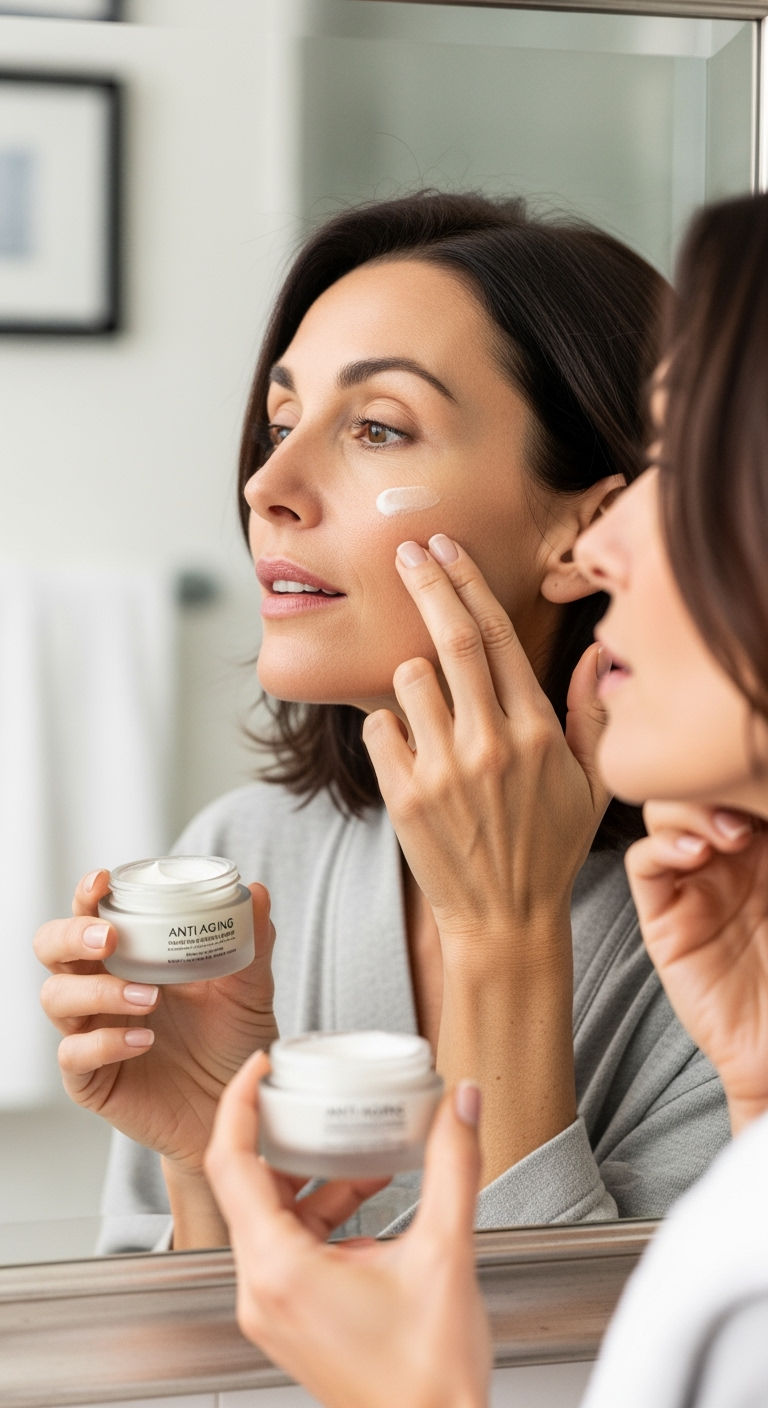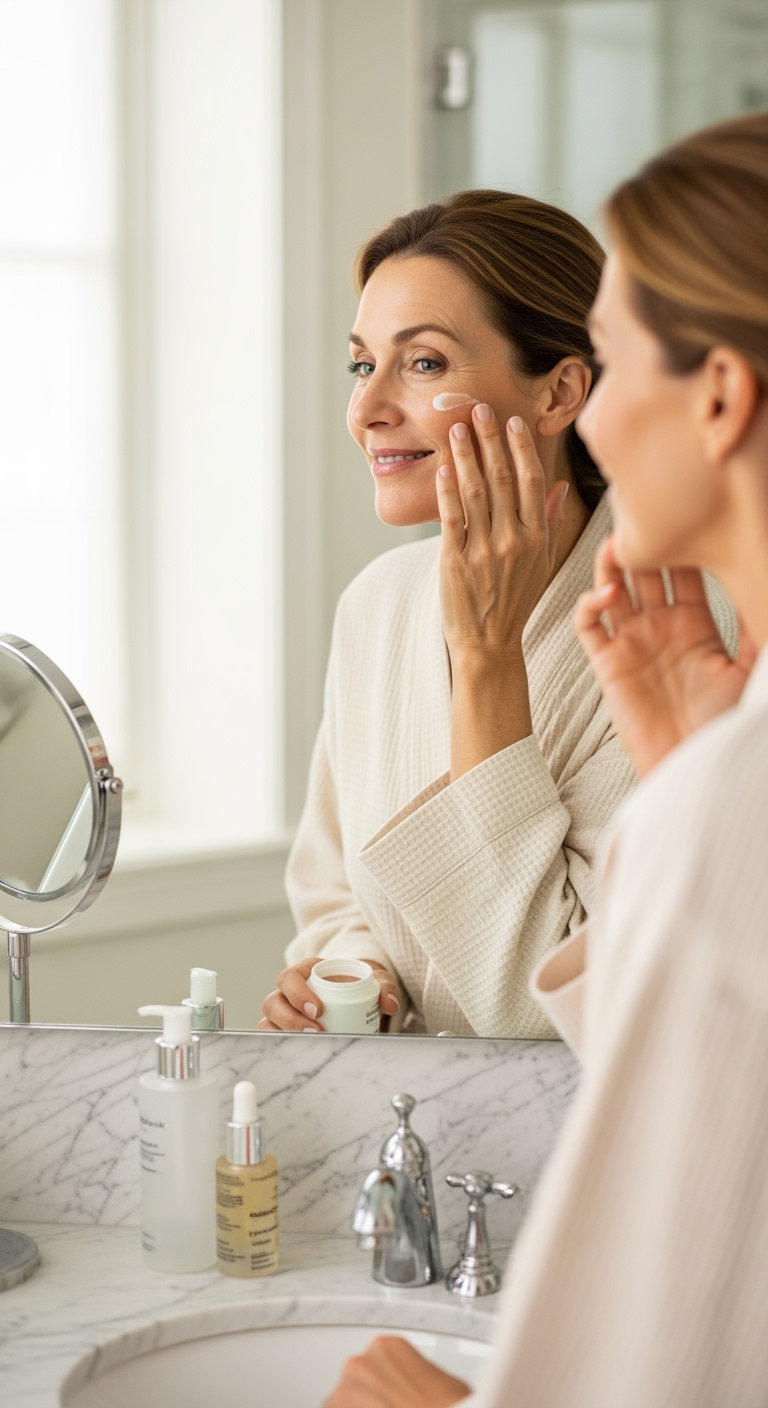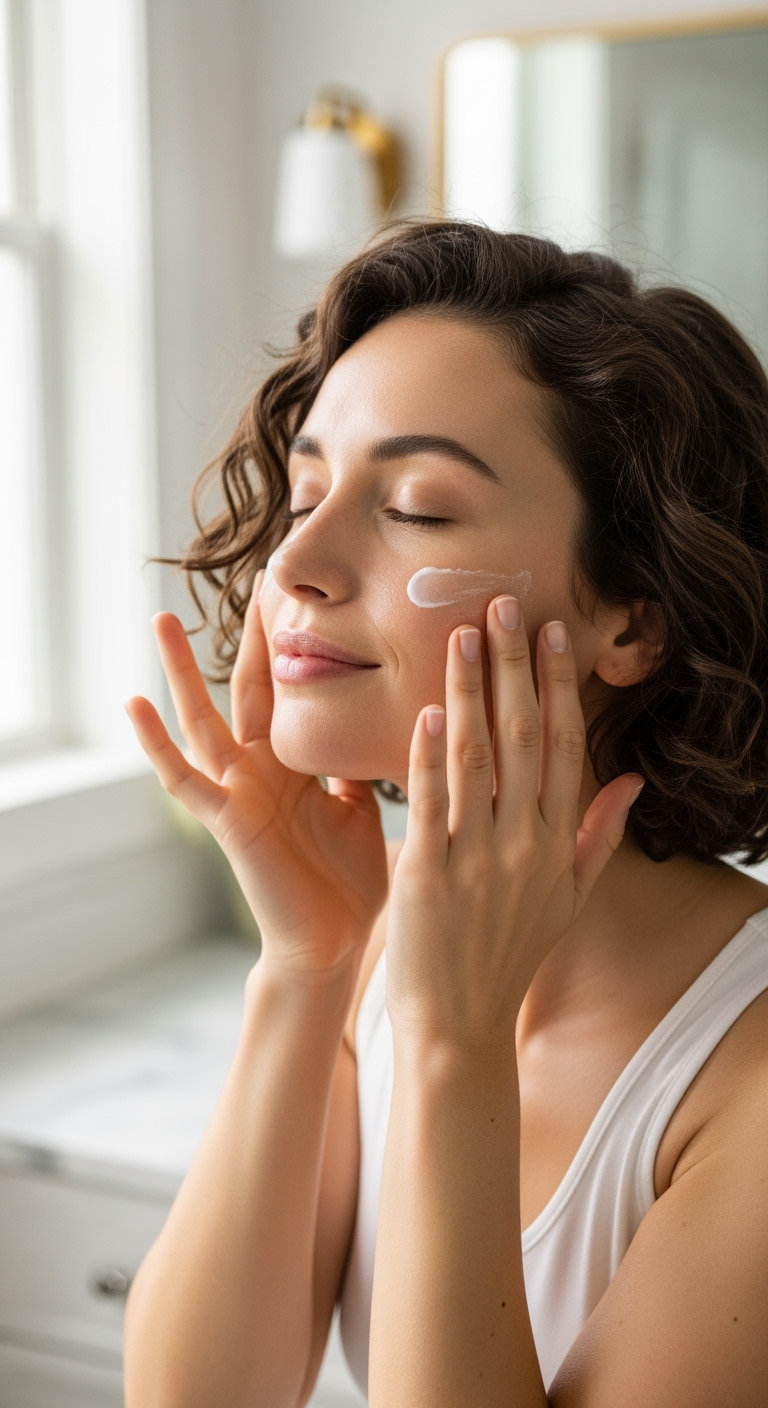The Real Talk on When to Start Using Anti-Aging Cream (Hint: It’s Earlier Than You Think)
Let’s be honest: the phrase “anti-aging cream” can feel a little intimidating. It makes you picture heavy jars of rich cream reserved for women in their 50s, or maybe it feels like something you don’t need to worry about until you see your first fine line. But here’s the reality—anti-aging skincare isn’t just for damage control. The best results come from prevention.
So, the big question: when should you start using anti-aging cream? The answer might surprise you. Let’s break it all down.
Table of Contents
Why Anti-Aging Cream Isn’t Just About Wrinkles

Before we get into timing, let’s clear the air about what anti-aging cream actually does. It’s not some magical eraser that makes crow’s feet vanish overnight. Instead, think of it as a multi-tasking hydrator powered by ingredients that:
- Boost collagen and elasticity
- Improve texture and tone
- Protect your skin barrier
- Target fine lines, pigmentation, and dullness
In other words, anti-aging creams aren’t only for people who already have wrinkles—they’re also about keeping your skin strong and healthy so those signs show up later (and less noticeably).
The Golden Window: Mid-20s to Early 30s

Dermatologists will tell you that collagen production starts to slow down in your mid-20s. Yep—25 is when your skin’s natural renewal process begins to decline. That doesn’t mean you need to dive into heavy-duty retinol right away, but it’s a good time to start incorporating products that support your skin’s foundation.
In your 20s: Focus on hydration, antioxidants (like vitamin C), and SPF. A lightweight “early prevention” anti-aging cream with peptides or hyaluronic acid is perfect.
In your 30s: This is when fine lines may start appearing, especially around the eyes and forehead. At this stage, anti-aging creams with retinol, AHAs, or ceramides become key players.
In your 40s and beyond: Skin may feel drier and thinner. Richer anti-aging creams with barrier-repairing ingredients and stronger actives help maintain firmness and smoothness.
Signs It’s Time to Start Using Anti-Aging Cream
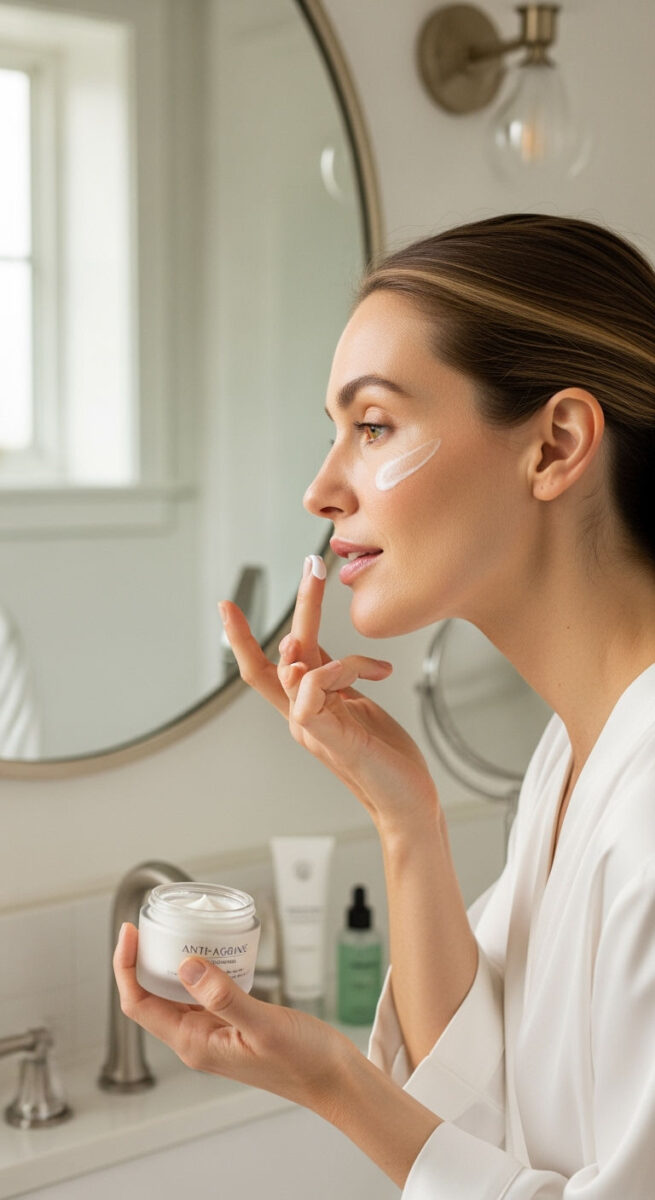
If you’re not into age numbers, here are the skin signs that say: “Hey, it’s time.”
- Fine lines around your eyes or mouth that don’t bounce back immediately.
- Uneven texture or dullness, even with regular exfoliation.
- Dryness or tightness that your usual moisturizer doesn’t fix.
- Loss of bounce—skin feels less plump than it used to.
- Pigmentation spots that linger after sun exposure.
Even if you’re not seeing these yet, prevention is always easier than correction.
Ingredients That Make Anti-Aging Creams Worth It
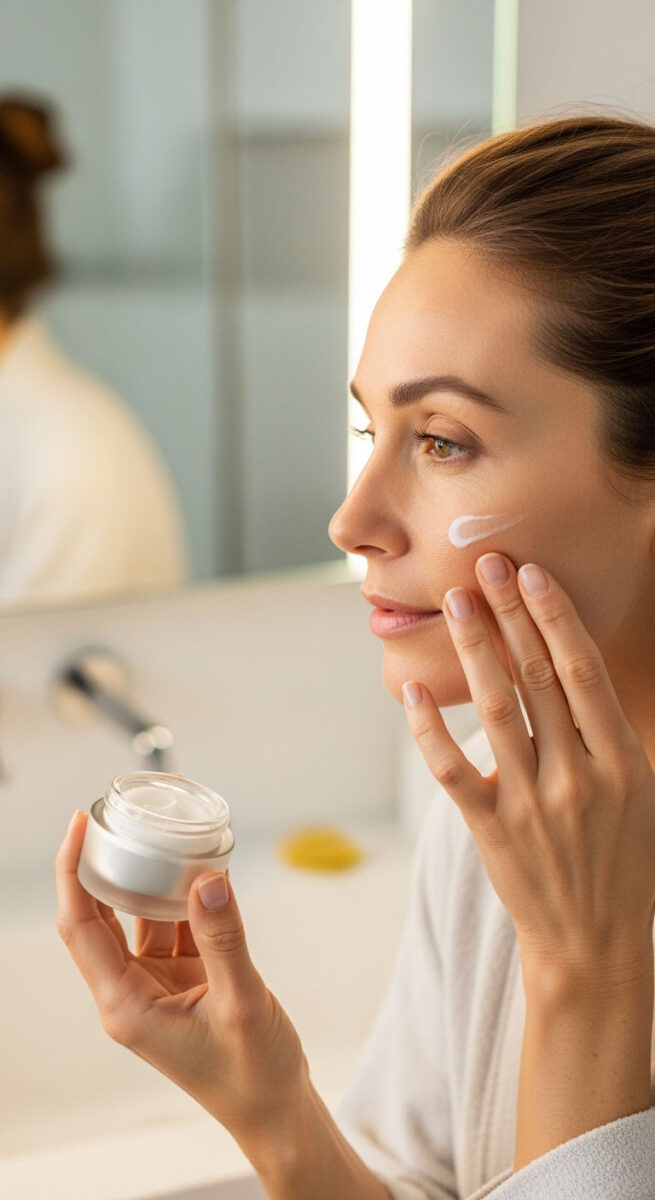
Not all anti-aging creams are created equal. Here’s what to look for, depending on your age and skin needs:
- Retinol (Vitamin A): The gold standard for smoothing lines and boosting collagen.
- Peptides: Support skin’s natural repair and improve firmness.
- Hyaluronic Acid: Plumps skin with hydration.
- Vitamin C: Brightens and protects against free radical damage.
- Niacinamide: Evens tone, strengthens barrier, calms redness.
- Ceramides: Restore and lock in moisture.
- SPF (daytime): Non-negotiable. The best anti-aging cream is sunscreen, period.
Morning vs. Night: When to Apply

Yes, you can (and should) use anti-aging creams both morning and night, but formulas differ.
- Morning: Go for antioxidants (vitamin C, niacinamide) + SPF to protect.
- Night: Opt for retinol, peptides, or richer textures that help repair overnight.
Pro tip: If you’re new to retinol, start slow (2–3 times a week at night), and always follow with sunscreen in the morning.
Do You Really Need It in Your 20s?

Here’s the thing: anti-aging skincare in your 20s isn’t about fixing—it’s about building habits and laying a foundation. Think of it like flossing your teeth: you don’t wait for cavities to show up before you start, right?
In your early 20s, stick to lighter prevention formulas (hydration + antioxidants). By your late 20s, slowly introduce mild retinol or peptides if you want to get ahead of the game.
Lifestyle Factors Matter Just as Much

You can spend $$$ on the fanciest anti-aging creams, but if your lifestyle isn’t skin-friendly, you won’t see results. A few things that speed up aging:
- Skipping sunscreen. UV damage = collagen breakdown.
- Smoking and drinking. Both dehydrate and damage skin cells.
- Poor sleep. Your skin repairs at night—don’t cut it short.
- Stress. Chronic stress accelerates aging through inflammation.
- High sugar diet. Sugar binds to collagen, making skin less elastic.
Pairing your anti-aging cream with healthy habits is the real secret to youthful skin.
How to Ease Into Anti-Aging Creams

If you’ve never used one before, don’t feel pressured to buy the strongest formula right away. Start gentle and build up:
- Pick one hero ingredient. (Ex: peptides if you’re in your 20s, retinol in your 30s+).
- Introduce slowly. Use it every other night at first.
- Layer smartly. Apply after serums, before moisturizer (or as your moisturizer if it’s a cream formula).
- Always wear SPF in the AM. Retinol especially makes your skin sun-sensitive.
Myths About Anti-Aging Creams
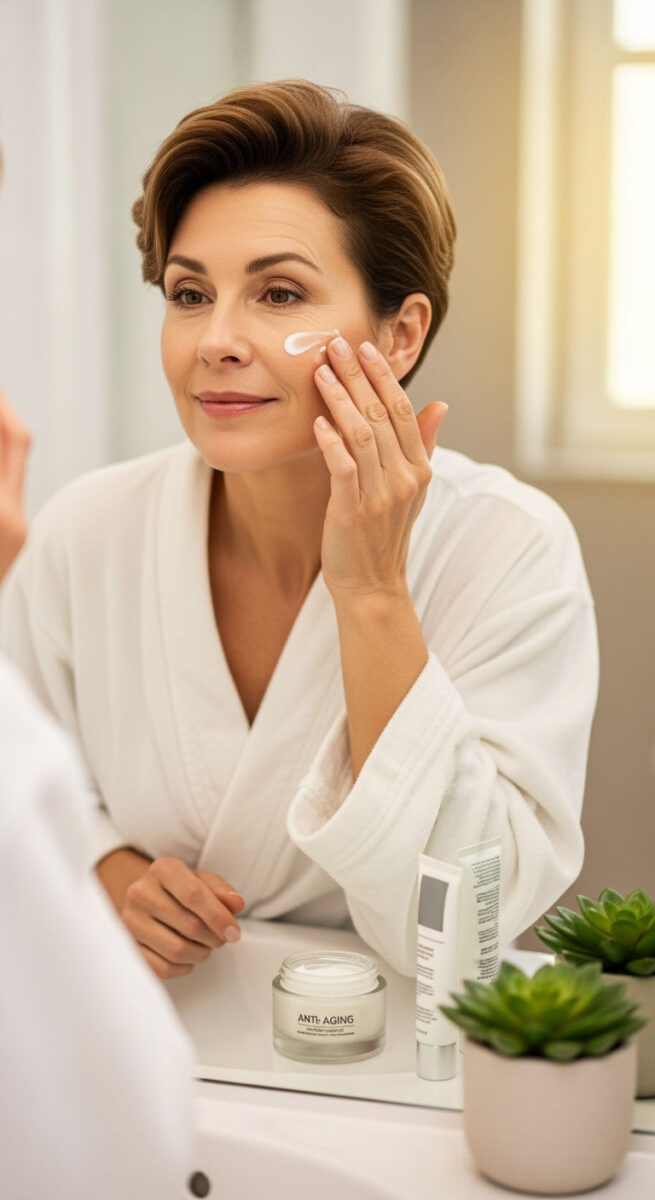
- Myth 1: “It’s too early for me.” Nope—prevention is key, even in your 20s.
- Myth 2: “It will make my skin worse.” Some actives like retinol cause an adjustment period, but with patience and proper hydration, your skin adapts beautifully.
- Myth 3: “Expensive creams work better.” Not always. Ingredients matter more than the price tag.
- Myth 4: “Only older people need it.” Again, anti-aging skincare isn’t just about fixing—it’s about preserving.
The Bottom Line
The best time to start using anti-aging cream? Earlier than most people think. Your mid-20s is the sweet spot, but it’s never too late to start. Whether you’re preventing or correcting, these creams play a huge role in keeping your skin strong, smooth, and glowing.
So don’t wait until you see lines in the mirror—future you will thank present you for starting sooner.

